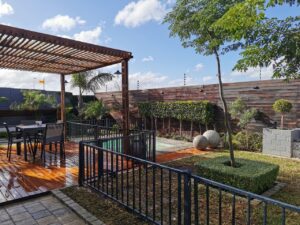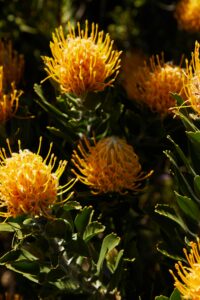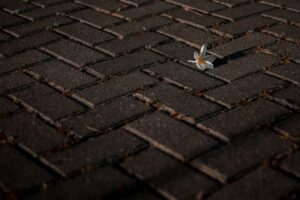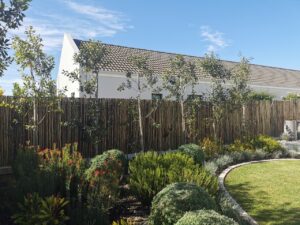Discover how to create a breathtaking, sustainable landscape in the Western Cape. Our guide to water-wise gardening focuses on smart design, indigenous planting, and efficient irrigation for Cape Town and Stellenbosch homes.
Why Sustainability is Non-Negotiable in the Western Cape
The Cape Winelands and City Bowl are globally celebrated for their natural beauty, but the Mediterranean climate brings a crucial challenge: water scarcity. For homeowners in Stellenbosch and Cape Town, a beautiful garden can no longer be a thirsty one. Modern landscaping is about harmonising aesthetic luxury with ecological responsibility. This means adopting water-wise principles from the ground up, ensuring your outdoor space is not only stunning but also resilient and sustainable.
Phase 1: Designing for Drought Resilience
A water-wise garden starts long before the planting begins. It starts with strategic design.
Zoning Your Landscape
The most effective method is to create zones based on water needs. Place high-water-demand plants (like certain edibles or exotics) closer to the house in smaller, manageable areas (Zone 1). Reserve the majority of your garden area (Zone 3) for drought-tolerant and indigenous species that thrive on minimal supplementary water.
Our expert team begins every project with a comprehensive Consultation & Design phase, ensuring your layout respects your property’s micro-climate and soil conditions.
Phase 2: The Best Water-Wise Plants for Cape Gardens
The Cape Floral Kingdom, the smallest but most diverse floral kingdom on Earth, provides an endless source of inspiration. Indigenous plants are pre-adapted to the local soil and rainfall, making them the ultimate water-saving choice.
Indigenous Heroes for Your Garden:
- Aloes (Aloe spp.): Architectural, structural, and vibrant, Aloes require almost no watering once established.
- Fynbos (Proteas, Leucadendrons, Ericas): Iconic to the Western Cape, these thrive in nutrient-poor, well-draining soil and are naturally drought-tolerant.
- Spekboom (Portulacaria Afra): A remarkable ‘carbon sink’ plant, this hardy succulent can handle dry spells and can be pruned into hedges or used as a groundcover.
- Wild Garlic (Tulbaghia violacea): Clump-forming, beautiful purple flowers, and extremely tough, perfect for borders or mass planting.
By focusing your planting strategy on these resilient species, you achieve a beautiful, low-maintenance, and truly sustainable landscape. Explore our comprehensive services in Soft Landscaping to choose the perfect mix for your property.
Phase 3: Smart Water Management & Irrigation Technology
No water-wise design is complete without a high-efficiency delivery system. In the Western Cape, a simple sprinkler is no longer adequate.
The Power of Drip Irrigation and Smart Controllers
The goal is to get water directly to the root zone, minimising loss to wind and evaporation. We exclusively use and install systems that feature:
- Drip Systems: Delivering precise amounts of water slowly and directly to the plant base.
- Smart Controllers: WiFi-enabled controllers that adjust watering schedules based on local weather forecasts and seasonal changes, overriding cycles during or after rainfall.
- Rain Sensors: Automatically shut off the system when precipitation is detected.
Investing in a custom-designed Irrigation system is the single most effective way to conserve water while ensuring the long-term health of your entire garden.
Future-Proofing Your Produce with Hydroponics
For those looking to grow food sustainably, consider dedicating a portion of your area to a controlled environment. Our services in Greenhouse & Hydroponics offer cutting-edge solutions for growing vegetables and herbs using up to 90% less water than traditional soil methods.
Phase 4: Ongoing Soil Health and Maintenance
Healthy soil is the foundation of a water-wise garden. Soil rich in organic matter acts like a sponge, dramatically improving water retention and reducing run-off.
- Mulching: A 5-10cm layer of organic mulch (wood chips, bark, or compost) insulates the soil, reducing water evaporation by up to 70%.
- Compost: Regular soil enrichment with quality compost improves structure and encourages deep root growth, making plants more drought-resistant.
- Specialised Garden Care: Seasonal check-ups, deep mulching, and irrigation calibration are essential for long-term sustainability and garden vitality in the Cape climate.








